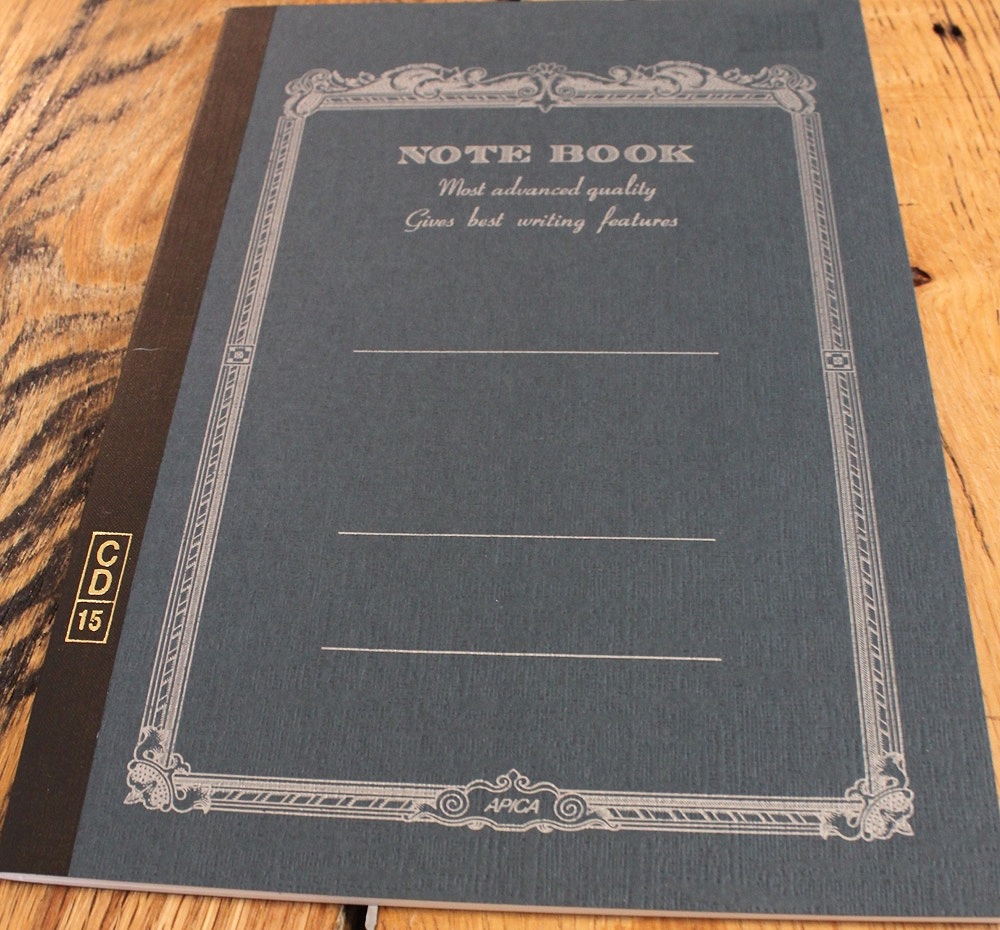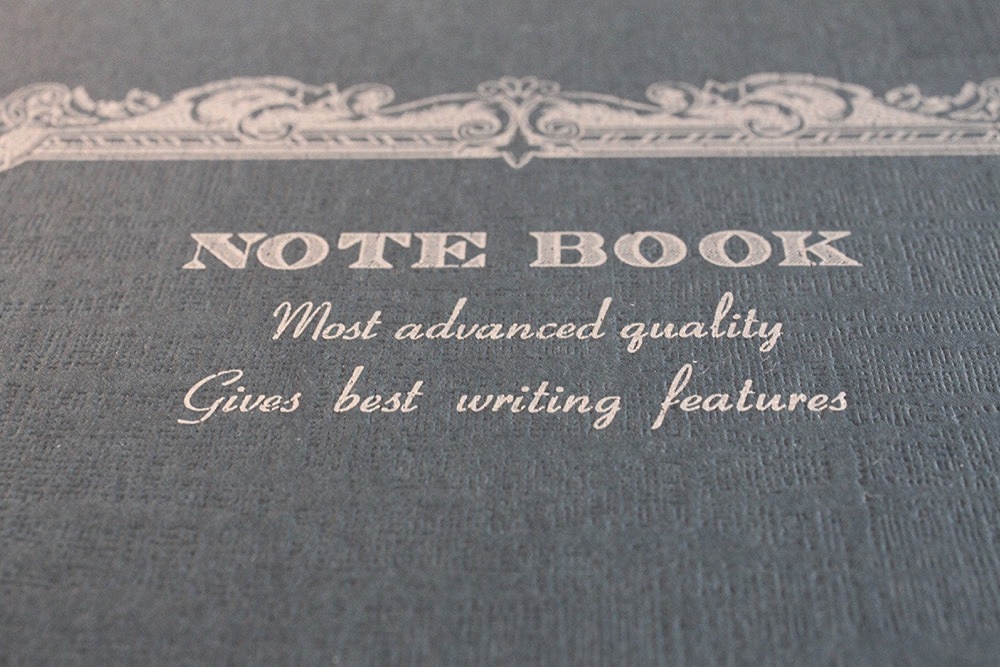Walk into any Japanese convenient store and you're likely to find a variety of pens and high-quality paper. Campus notebooks are one of the most common brands. These thin notebooks come in various sizes and are sturdy enough for the average Japanese student on-the-go. Between two to four dollars in Japan, these 68 page delights are accessible, even on the smallest of student budgets.
The Apica CD15 notebook is a 68-page B5-sized notebook with personality. Apica notebooks are a slightly upscale version of the Campus notebook, and the slogan on the notebook cover says it all, "Most advanced quality. Gives best writing features." Awkward translations are common in Japanese paper goods and add a sense of playfulness and whimsy. The notebook is thread-bound, with sturdy binding tape to protect the spine. The cover is made of heavy cover stock, with a rough-textured surface.
It's hard to imagine walking into a convenient store to pick up fountain pen friendly paper, but Apica's paper is thick and works very well with a range of fountain pens and inks. While there is no visible bleed through, thicker nibs and certain inks do cause a light to moderate amount of feathering, but I'm very pleased with the paper's performance.
I've tested multiple notebooks of various sizes and paper types, and I'm in love with the 68 page B5 format of this notebook. The paper size is large enough for substantial writing projects, but the small page count makes the notebook very portable and reduces my notebook completion anxiety. The Apica CD15 notebook is a fantastic find. I use the notebook to draft all of my blog posts and continue to do so for the foreseeable future.









